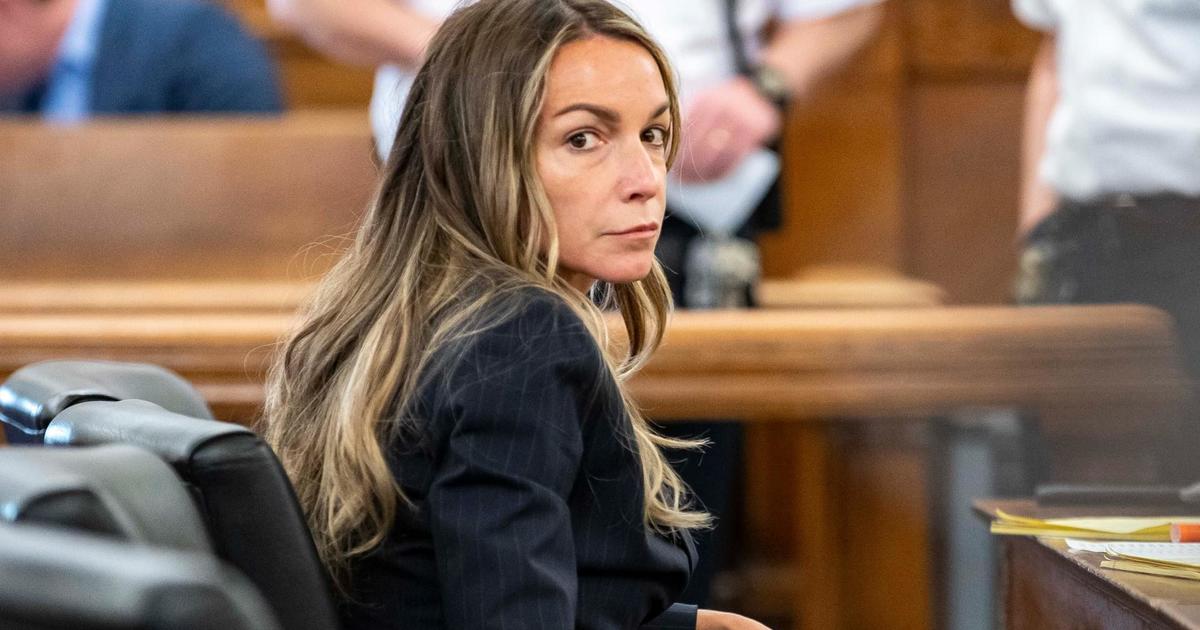Pardons Become Very Rare During Governor Patrick's Tenure
BOSTON (AP) — In his five years as Massachusetts' chief executive, Gov. Deval Patrick has been careful to avoid the political pitfalls that come with the power to grant clemency, by denying the one petition that has cleared enough hurdles to make it to his desk.
The Democratic governor has also taken measures to strengthen the clemency process. Upon taking office in January 2007, he revised clemency guidelines to encourage petitioners to seek "other avenues" to clear their criminal records, like having them sealed, among other changes.
He also nominated new parole board members — a majority of whom came in a move he said was intended to restore public confidence in the system after a parolee shot and killed a police officer in 2010.
Under the Massachusetts constitution, governors can grant pardons, which forgive an offender's underlying offense, and commutations, which modify inmate sentences, in "exceptional circumstances."
But before that can happen, petitions must first be reviewed and approved by the seven-member Massachusetts Parole Board, which serves as the Advisory Board of Pardons. The Governor's Council makes final actions on pardons and commutations.
In Patrick's time as governor, over 280 pardon and 220 commutation petitions were filed in Massachusetts. Just one, a commutation request for convicted murderer Arnold King, made it to Patrick's desk, only to be denied.
Patrick said while he strongly believes in redemption and rehabilitation, King's underlying conviction was too egregious to warrant a change in sentence.
No recommendations for pardons have reached his desk since he's been in office.
Meanwhile, Patrick's predecessor, Republican presidential hopeful Mitt Romney, received 15 recommendations for pardons and three for commutations from the Parole Board. He granted none during his four years as Massachusetts governor. More than 170 pardon and 100 commutation requests were filed during this time.
Pardons in Massachusetts have dwindled from 70 in the 1990s to virtually none in the past 10 years. Republican Gov. Jane Swift was the last to approve pardons in Massachusetts, granting seven in 2002.
Governor-granted pardons reached their height in 1970, with 477 being granted in one year.
Jennifer Mieth, of the Executive Office of Public Safety and Security, said it's hard to pinpoint definitive reasons for the decrease in the number of clemency requests making it to the governor's desk.
She said it could stem partly from the changes Patrick made to the clemency guidelines. Mieth said it's become common for governors to revise the guidelines to reflect changes in the law and what's going on in the world.
Under Patrick's clemency guidelines, individuals seeking pardons must, at minimum, show "good citizenship," not have been convicted of a felony in the past 15 years and "demonstrate a verified, compelling and specific need for a pardon," like employment.
Likewise, inmates seeking sentence commutation must show they have made strides toward becoming a "law-abiding citizen," suffer from a mental illness that a doctor verifies would improve by release, have an unfair sentence, or have cooperated in an investigation.
Josh Wall, who was appointed to serve as the Parole Board's chairman in February 2011, said he also could not account for the decline in favorable clemency recommendations sent to the governor, saying that the Parole Board makes its decisions based on the governor's guidelines.
"It's not my responsibility to critique the work of those who preceded me," he said. "My responsibility is to promote the goals of this governor's guidelines, and our efforts are focused on following these guidelines and evaluating each petition on its merits."
Parole Board members are nominated by the governor, with the consent of his counsel, to serve in five-year staggered terms. But, with five members resigning in January 2011 after investigators said Woburn police officer John B. Maguire was shot and killed by parolee Dominic Cinelli during a botched robbery, Patrick has had the opportunity to overhaul the board with new members.
Patrick forced the resignations of board members who voted to release Cinelli, following public outrage that he had been paroled despite being sentenced to three life terms in 1986.
Wall said every board member shares the governor's view on the importance of a fair criminal justice system, adding that the gap between petitions filed and those approved can be attributed to the large number of clemency requests that fail to meet the governor's threshold.
The board meets and votes on clemency petitions in private, closed-door sessions.
This recent trend away from granting clemency is not surprising, though, said Austin Sarat, the chair of Amherst College's political science department.
"If you grant a commutation or pardon, you may please the person who's the recipient or their family, but there is no political gain to run on the idea that you are interested in using the clemency process," he said.
Sarat, who has authored books on executive clemency, said grants for pardons or commutations have decreased significantly in wake of what he calls, "the Dukakis lesson," referencing former Massachusetts Gov. Michael Dukakis' support of a weekend furlough program under which convicted killer Willie Horton raped a woman after he failed to return to prison.
Horton's crime came back to haunt Dukakis during his unsuccessful 1988 presidential bid against George H.W. Bush, when Republicans pounced on the controversy as an opportunity to portray the Democrat as "soft on crime."
But Gavi Wolfe, an American Civil Liberties Union of Massachusetts staff attorney, said the ability to grant clemency is important to a fully-functioning criminal justice system because it allows governors to exhibit "moral leadership."
"It's important to give credence to the idea of redemption," he said.
Copyright 2012 The Associated Press.



